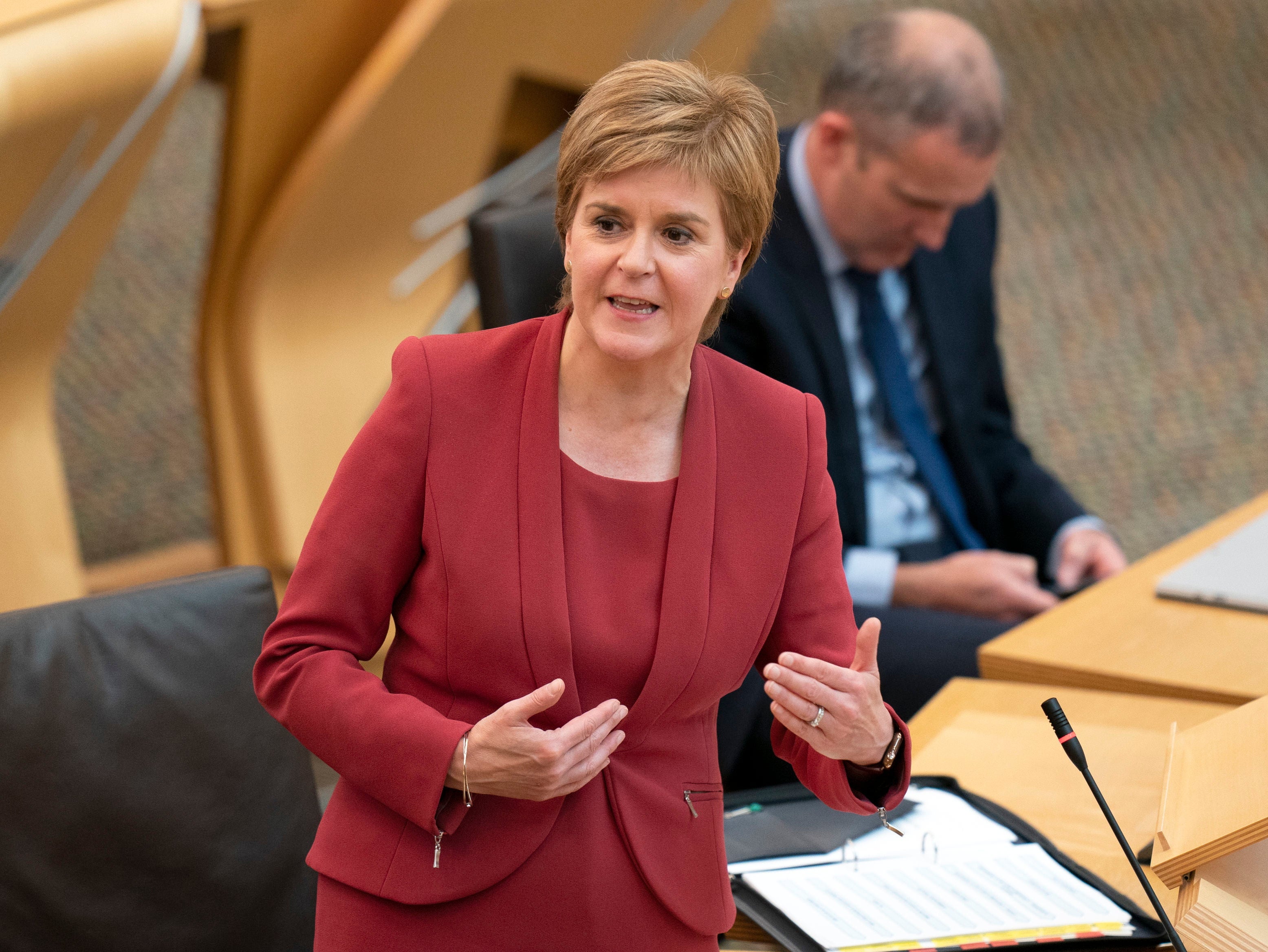Mandate for new independence referendum ‘undeniable’ as Greens join Scottish government, Sturgeon says
SNP leader says both parties will be able to ‘retain distinct voices’ in power-sharing agreement

There is an “undeniable” mandate in Scotland for a second independence referendum following the Scottish government’s power-sharing deal with the Green Party, the country’s first minister Nicola Sturgeon has said.
The agreement, which has now been endorsed by both parties, will see the Scottish Greens form part of a government for the first time anywhere in the UK.
Ms Sturgeon told Holyrood on Tuesday that a “key strand” of the deal would be fulfilling what she said was the “democratic mandate to let the Scottish people choose our own future”, alongside dealing with issues such as climate change and the recovery from Covid-19.
“The mandate for that is undeniable - between us, the SNP and the Greens hold 72 of the 129 seats in this parliament and each one of us was elected on a commitment to an independence referendum,” the SNP leader said.
“The decisions that will shape our society and economy and our place in the world must be determined, democratically, here in Scotland and not imposed upon us, so often against our will, by government at Westminster.”
Ms Sturgeon added that the agreement between the two parties was not a formal coalition, as the SNP and the Greens would “retain distinct voices and independent identities”.
However, she argued that the deal was “genuinely ground-breaking” as it will see Green members work in a national government as ministers for the first time.
In response, Scottish Conservative leader Douglas Ross branded the agreement as a “nationalist coalition with one overriding goal - separating Scotland from the United Kingdom”.
“Trying to claim that this is not a coalition, that is quite simply a joke even by SNP standards,” he said.
The Scottish Tory leader also accused Ms Sturgeon’s government of allowing the deal to take priority over the programme for government, which is usually announced when MSPs return after the summer recess to set out ministers’ plans for the next 12 months.
Mr Ross added: “This is not a deal that works for Scotland. This is a deal that works for Nicola Sturgeon.
“She failed to get a majority and this deal is a consequence of that.”
Meanwhile, Scottish Labour leader Anas Sarwar said that the agreement did not represent a positive change for the country and simply formalised the situation in the last parliament, where he said SNP policy was supported by the Greens.
“This is no new government, this is not a clean start, this is a deal that more about the constitution, not the climate,” Mr Sarwar said.
“It's about greater control for Nicola Sturgeon and the SNP, not co-operation.”
He argued ministers should instead be focused on tackling issues such as unemployment, child poverty, the country’s drugs deaths crisis and tackling the backlog that has built up within the NHS.
Additional reporting by PA
Join our commenting forum
Join thought-provoking conversations, follow other Independent readers and see their replies
Comments
Bookmark popover
Removed from bookmarks